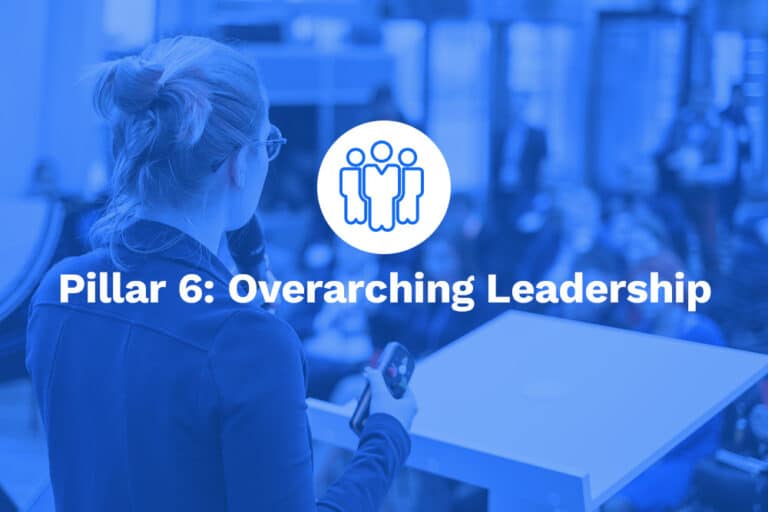Networking 101: Relationship Building at Work and Your Industry
Building strong relationships with colleagues and networking within your industry are essential for career growth and professional fulfillment. These relationships not only create a supportive work environment but also open doors to new opportunities and collaborations. At Leader Loop, we emphasize the importance of relational savvy—a key competency that can enhance your career in profound ways. Let’s explore strategies to help you build and nurture these connections.
Understanding the Importance of Building Relationships
1. Enhanced Collaboration: Strong relationships foster better teamwork and collaboration, leading to more successful projects and initiatives.
2. Career Advancement: Networking within your industry can expose you to new opportunities, mentorship, and valuable industry insights.
3. Support System: Having a network of trusted colleagues provides a support system for professional advice, feedback, and encouragement.
Strategies to Build Strong Relationships with Colleagues
1. Be Approachable and Positive
- Why It Matters: An approachable and positive demeanor makes others feel comfortable interacting with you, paving the way for strong relationships.
- How to Implement:
- Smile and Greet: Simple gestures like smiling and greeting your colleagues can make a big difference.
- Show Enthusiasm: Be enthusiastic about your work and supportive of your colleagues’ efforts.
- Maintain Open Body Language: Use open and relaxed body language to appear more approachable.
2. Communicate Effectively
- Why It Matters: Clear and open communication is the foundation of any strong relationship.
- How to Implement:
- Listen Actively: Pay full attention when others are speaking and show genuine interest in their perspectives.
- Be Transparent: Share information openly and honestly, and be clear about your intentions and expectations.
- Provide Constructive Feedback: Offer feedback in a helpful and positive manner, focusing on solutions rather than problems.
3. Show Genuine Interest
- Why It Matters: Showing interest in your colleagues’ lives and work fosters deeper connections and mutual respect.
- How to Implement:
- Ask Questions: Inquire about their projects, interests, and well-being.
- Remember Details: Remember and follow up on important details they share, such as personal milestones or project updates.
- Celebrate Achievements: Acknowledge and celebrate your colleagues’ successes and milestones.
4. Be Reliable and Supportive
- Why It Matters: Reliability and support build trust, which is crucial for strong relationships.
- How to Implement:
- Keep Your Commitments: Follow through on your promises and commitments consistently.
- Offer Help: Be proactive in offering assistance and support when your colleagues need it.
- Be Empathetic: Show understanding and empathy towards your colleagues’ challenges and concerns.
Strategies to Network Within Your Industry
1. Attend Industry Events
- Why It Matters: Industry events provide opportunities to meet new people and expand your professional network.
- How to Implement:
- Participate Actively: Attend conferences, workshops, and seminars relevant to your industry.
- Network Purposefully: Engage with speakers, attendees, and exhibitors, and exchange contact information.
- Follow Up: After events, follow up with new contacts to nurture the connection.
2. Leverage Online Platforms
- Why It Matters: Online platforms like LinkedIn offer a convenient way to connect with industry professionals.
- How to Implement:
- Optimize Your Profile: Ensure your profile is complete, professional, and highlights your skills and achievements.
- Join Industry Groups: Participate in LinkedIn groups and forums related to your industry.
- Engage Regularly: Share relevant content, comment on posts, and engage with your network to stay visible.
3. Seek Mentorship and Collaboration
- Why It Matters: Mentorship and collaboration can provide valuable guidance and opportunities for growth.
- How to Implement:
- Identify Potential Mentors: Look for experienced professionals in your industry who can offer insights and advice.
- Propose Collaborations: Initiate collaborative projects or partnerships with industry peers.
- Be a Mentor: Offer your expertise and guidance to others in your network, fostering a mutually beneficial relationship.
4. Volunteer and Give Back
- Why It Matters: Volunteering and giving back to the community can help you build relationships and enhance your reputation.
- How to Implement:
- Volunteer for Industry Associations: Get involved with professional organizations and associations in your field.
- Share Your Knowledge: Offer to speak at events, write articles, or mentor others in your industry.
- Support Causes: Participate in community service projects or causes that align with your values and industry.
The Gist
Building strong relationships with your colleagues and networking within your industry are vital for your professional growth and success. By being approachable, communicating effectively, showing genuine interest, being reliable, attending industry events, leveraging online platforms, seeking mentorship, and giving back, you can cultivate meaningful connections that enhance your career. At Leader Loop, we’re here to support you with unique, actionable advice to help you advance your career. Start implementing these strategies today and watch your professional network flourish.
Leader Loop Pillars: Foundation – Relational Savvy
By focusing on the fundamental competency of Relational Savvy under our Foundation pillar, you’ll build a strong base for your career advancement. Keep exploring Leader Loop for more insights and resources tailored to help you grow and succeed.
About Leader Loop: Leader Loop crafts actionable, competency-focused articles to accelerate your career growth. Our expert-written content provides practical strategies for leadership, team management, and professional development. Whether you’re a seasoned manager or an ambitious individual contributor, our articles deliver the insights you need to excel in today’s workplace.




